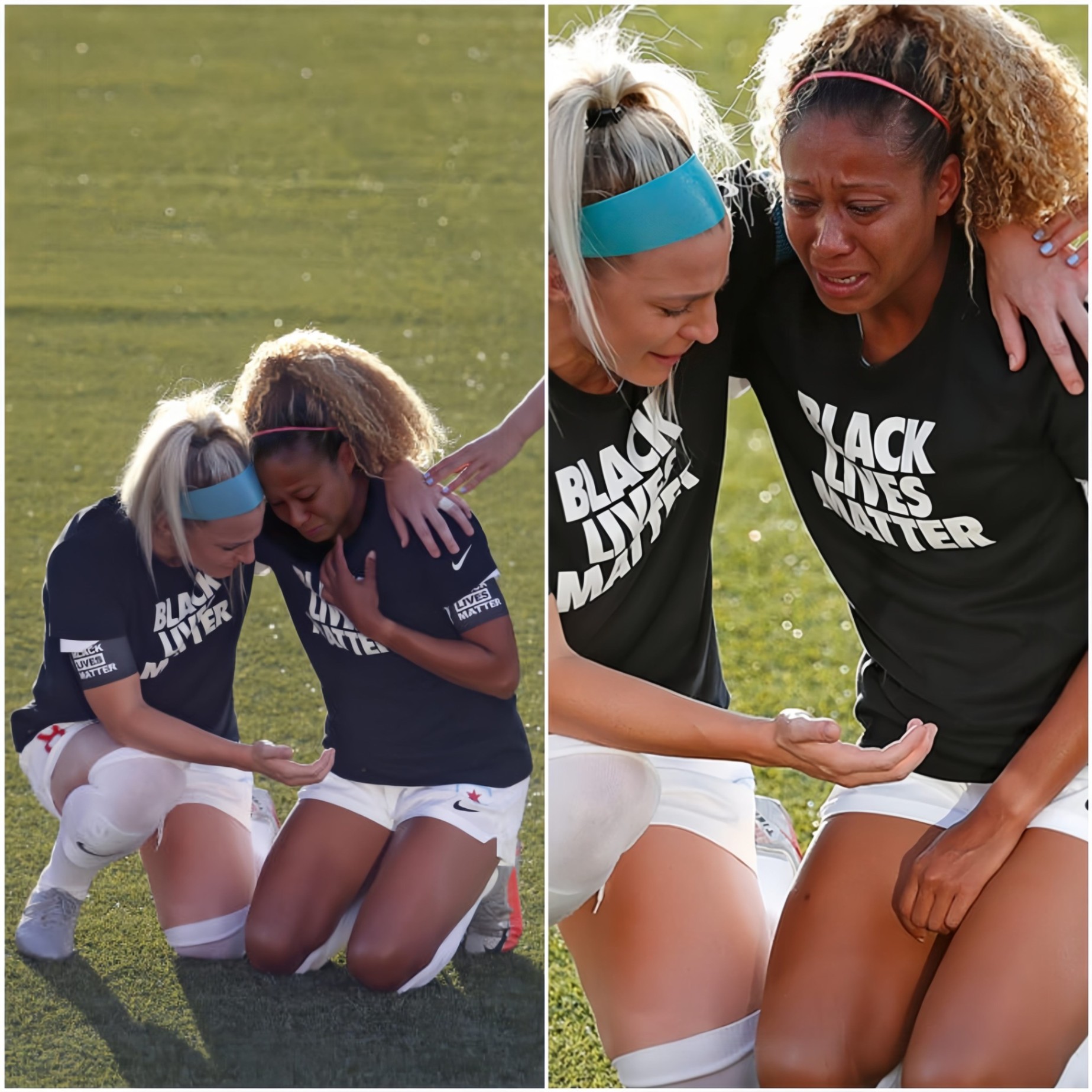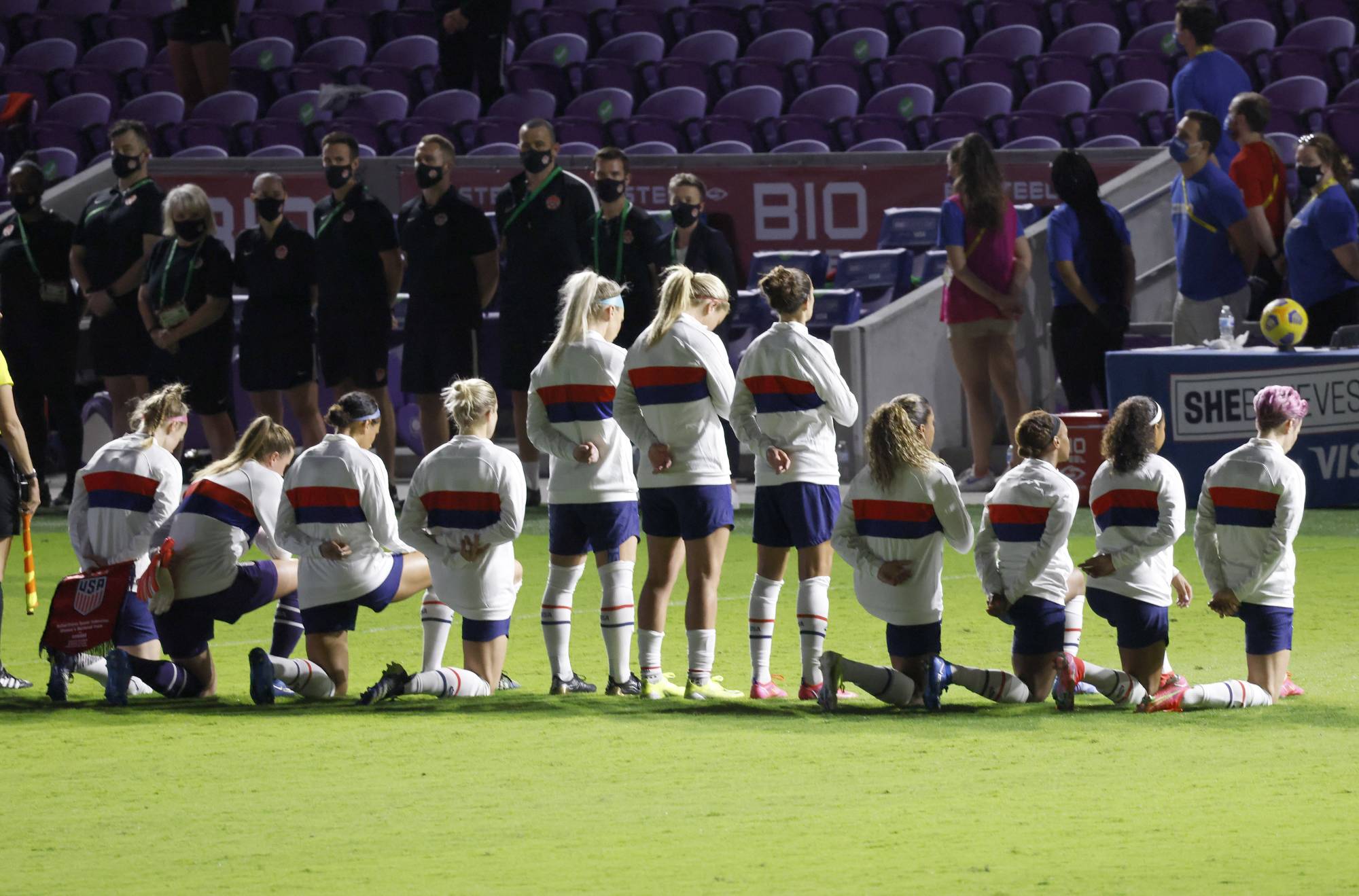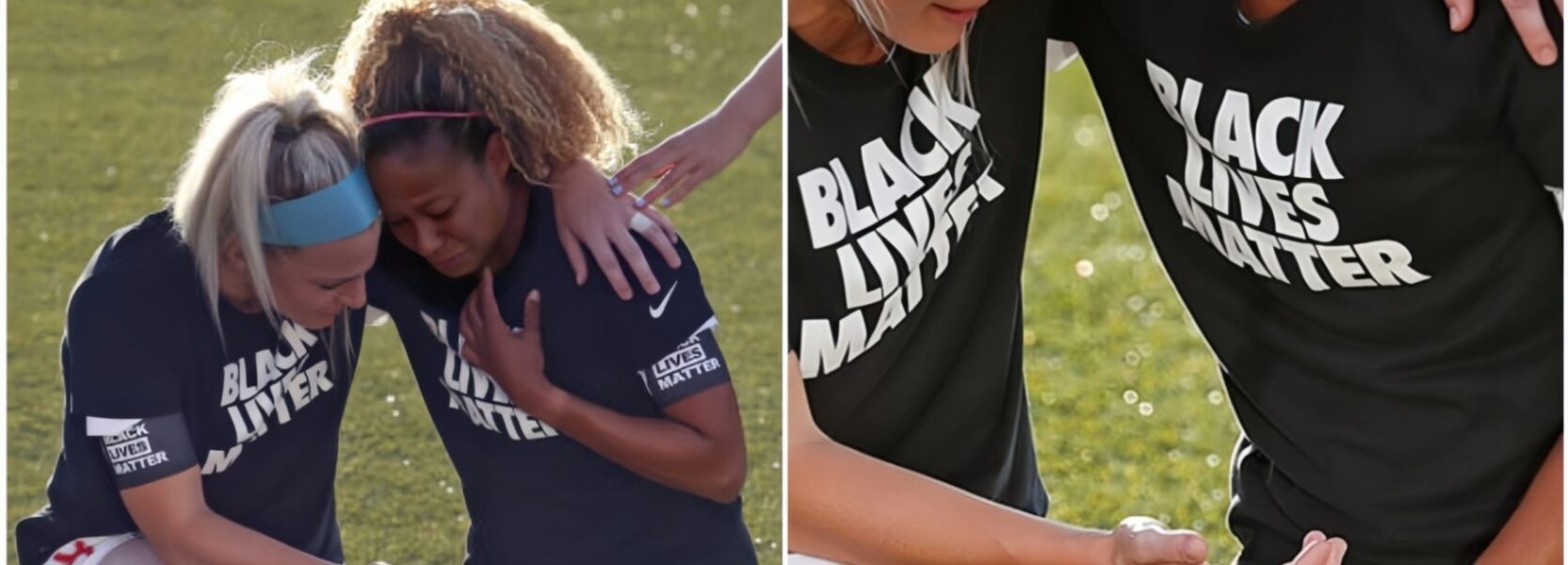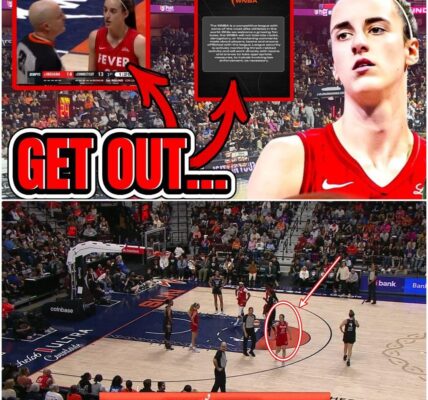Michael Jordan Sparks Debate: Calls for Athletes Who Kneel During the National Anthem to Lose Medals.
In a move that has ignited heated discussions across the sports world and beyond, NBA legend Michael Jordan has publicly called for athletes who kneel during the national anthem to face repercussions, including the potential loss of medals. His comments have prompted a robust debate about the intersection of sports, patriotism, and freedom of expression, drawing attention from fans, analysts, and fellow athletes.
Jordan’s remarks come at a time when the act of kneeling during the national anthem has become a symbol of protest against racial injustice and inequality. Originating with former NFL quarterback Colin Kaepernick in 2016, the movement has gained momentum, with numerous athletes across various sports choosing to kneel as a form of silent protest. While many supporters view this act as a powerful statement in favor of social justice, detractors argue it disrespects the flag and the sacrifices made by military personnel.

In a recent interview, Jordan expressed his discontent with athletes who choose to kneel, stating, “When you represent your country, there are certain expectations. If you’re going to kneel during the anthem, you should reconsider whether you deserve to represent that flag at all.” His comments have drawn both praise and criticism, sparking a debate about the responsibilities of athletes in the public eye.
Supporters of Jordan’s viewpoint argue that kneeling during the anthem undermines the unity and pride that comes with representing one’s country. They believe that athletes should prioritize respect for national symbols, especially during significant events such as the Olympics or World Cup. “When you win a medal, it’s not just about personal achievement; it’s about representing your nation,” said a prominent sports commentator. “Kneeling sends the wrong message to fans and young athletes who look up to these role models.”
On the other hand, many athletes and advocates for social justice have come to the defense of kneeling as a legitimate form of protest. They argue that the act of kneeling is rooted in a desire for equality and that it highlights systemic issues that need addressing. “Athletes have a platform, and they should use it to advocate for change,” said a current NBA player. “Kneeling is not about disrespect; it’s about raising awareness and sparking conversations that matter.”

Jordan’s comments have reignited a long-standing debate about the role of athletes in activism and the responsibilities that come with fame. For many, sports figures are seen as role models, and their actions can influence public opinion significantly. This places an expectation on them to be mindful of their actions, especially in relation to national pride. However, this expectation can clash with the athletes’ desire to advocate for social justice.
The debate also raises questions about freedom of speech and expression in the realm of sports. Athletes, like all citizens, have the right to express their opinions and beliefs. The challenge lies in balancing that right with the expectations of the public and the organizations they represent. Critics of Jordan’s stance argue that advocating for punitive measures against protesting athletes is a violation of their rights.
Moreover, Jordan’s remarks come with added weight due to his iconic status in the sports world. As one of the most recognized athletes of all time, his opinions can sway public perception and influence younger athletes. The potential ramifications of his comments could lead to increased pressure on athletes to conform to traditional expectations of patriotism.
As discussions around Jordan’s comments continue, it remains to be seen how this will affect the landscape of athlete activism. With the ongoing fight for racial justice and equality, athletes are more motivated than ever to use their platforms to advocate for change. Jordan’s call for consequences could discourage some from speaking out, but it may also galvanize others to double down on their commitment to activism.

In conclusion, Michael Jordan’s recent comments regarding athletes who kneel during the national anthem have sparked a divisive debate about patriotism, protest, and the responsibilities of athletes. While some support his call for repercussions, others view it as an infringement on freedom of expression. As the conversation evolves, it underscores the complexity of navigating social issues within the realm of sports, reminding us that the actions of athletes resonate far beyond the playing field. The future of athlete activism hangs in the balance, as the voices of both supporters and detractors continue to be heard loud and clear.


![Rick Barry: “Anybody that does something flagrant to [Caitlin Clark] for what she’s brought to the game should be suspended and fined.”](https://today.licham.vn/wp-content/uploads/2024/09/1727515183955-428x400.jpg)

